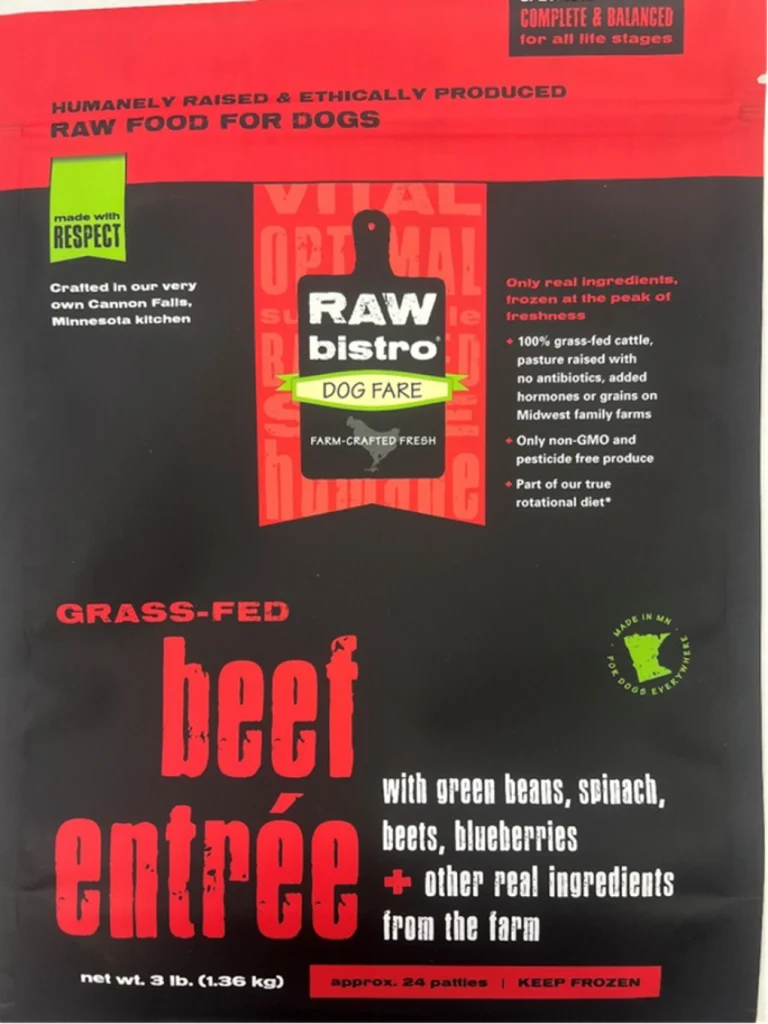Raw Bistro Pet Fare Issues Voluntary Recall of Beef Dog Food Due to Salmonella Concerns
In a proactive measure to protect both pets and their owners, Raw Bistro Pet Fare has voluntarily recalled specific batches of their frozen beef dog food products after potential salmonella contamination was identified. The recall affects two product sizes of their Grass-Fed Beef Entrée that were distributed across California, Colorado, Illinois, and Minnesota between September 1 and September 17, 2025. This precautionary step highlights the ongoing challenges in food safety that affect not just human consumption but also pet food products, which can indirectly impact human health through handling.
The recall specifically targets 3-pound bags (UPC 858833002247) and 18-pound bulk cases (UPC 858833002629) of the Grass-Fed Beef Entrée with Lot 239 and a “Best By” date of August 27, 2026. The potential contamination was discovered after the FDA collected and tested samples from a distributor, which subsequently tested positive for salmonella. It’s worth noting that despite the positive test, no illnesses in either pets or humans connected to these products have been reported so far. Nevertheless, the company is taking the situation seriously, as salmonella can cause illness in animals consuming contaminated products and poses significant risks to humans who handle the food without proper hygiene practices.
This recall adds to a growing list of public health alerts and product recalls initiated this year due to various concerns including potential contamination, undeclared allergens, and other safety issues. Food safety remains a critical public health matter, with millions of Americans experiencing food allergies or sensitivities annually. While the FDA recognizes nine “major” food allergens that affect human consumption (eggs, milk, fish, wheat, soybeans, crustacean shellfish, sesame, tree nuts, and peanuts), pet food contamination presents its own unique challenges and risks that extend beyond the animals to their human caretakers.
The FDA plays a crucial oversight role during such recalls, even when they are voluntarily initiated by companies. Their responsibilities include reviewing recall strategies, evaluating potential health hazards, monitoring the recall process, and appropriately alerting both the public and other companies within the supply chain. As part of their commitment to transparency, the FDA maintains public access to recall information through their Enforcement Report, which classifies recalls and provides specific details about actions taken by the recalling companies. This systematic approach helps ensure that potentially dangerous products are removed from the marketplace effectively and that consumers receive timely information about products that might pose health risks.
For consumers who have purchased the affected Raw Bistro Dog Fare products, the company has issued clear guidance: do not feed the recalled food to pets and avoid selling or donating the products. Instead, pet owners are advised to either return the items to their original place of purchase for a refund or safely dispose of them. This straightforward approach aims to minimize the risk of salmonella exposure while providing consumers with practical options for handling the recalled items. The company has also established dedicated communication channels for concerned customers, who can reach out by phone during weekday business hours or via email for additional information and assistance.
This incident serves as a reminder of the interconnected nature of our food systems, where safety measures must account for both direct and indirect pathways of exposure to potential contaminants. While pet food might seem separate from human food concerns, the reality is that handling contaminated pet products can lead to cross-contamination in households, potentially affecting human health. Through voluntary recalls like this one, companies demonstrate responsibility toward both their animal and human customers, while regulatory bodies like the FDA continue to provide the oversight and transparency needed to maintain public trust in our food safety systems. As consumers, staying informed about recalls and following proper food handling practices—even with pet foods—remains an important part of protecting household health.













